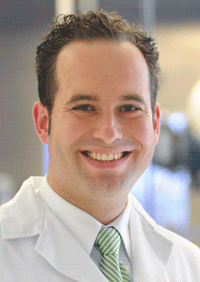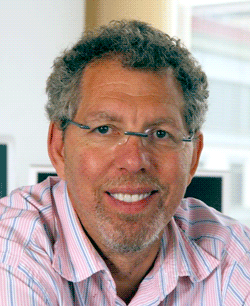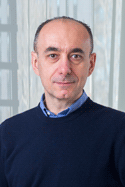The Active segment of the ASCI membership recently voted on candidates for Council vacancies, on nominees recommended for election this year to the Society, and on a change to the organization’s bylaws. The results were recently audited and confirmed.
The following members will join the Council at the conclusion of the 2016 annual meeting, April 15-17:
Elected to Council
Vice President: Kieren Marr, MD, Associate Vice-Chair of Medicine for Innovation at Johns Hopkins. She was elected in 2009.
Secretary-Treasurer Elect: Hossein Ardehali, MD, PhD, Professor of Medicine-Cardiology and Professor of Pharmacology, Northwestern Medicine. He was elected in 2012.
Councilor: Andrew P. Fontenot, MD, Henry N. Claman Professor of Medicine, University of Colorado Denver. He was elected in 2009.
Elected members, 2016
The Council received 160 membership nominations for 2016 and recommended 74 nominees for election; the recommendation was approved. Those being inducted at the ASCI Dinner and New Member Induction Ceremony on April 15, 2016, are listed below.
Derek W. Abbott, MD, PhD
Case Western Reserve University School of Medicine
Vahid Afshar-Kharghan, MD
University of Texas M.D. Anderson Cancer Center
John H. Alexander, MD, MHSc
Duke University & Duke-NUS Graduate Medical School
Balamurali K. Ambati, MD, PhD, MBA
University of Utah School of Medicine
Joseph R. Arron, MD, PhD
Genentech
Euan A. Ashley, MRCP, DPhil, FACC, FESC
Stanford University School of Medicine
Kamran Atabai, MD
University of California, San Francisco, School of Medicine
Jasmohan S. Bajaj, MBBS, MD, MS
Virginia Commonwealth University School of Medicine
Robert H. Baloh, MD, PhD
Cedars Sinai Medical Center
Sanjay Basu, MD, PhD
Stanford University School of Medicine
Trever Bivona, MD, PhD
University of California, San Francisco, School of Medicine
Catherine A. Blish, MD, PhD
Stanford University School of Medicine
George A. Calin, MD, PhD
University of Texas M.D. Anderson Cancer Center
Stephen Y. Chan, MD, PhD
University of Pittsburgh School of Medicine
John Tzu-yu Chang, MD
University of California, San Diego, School of Medicine
Keith A. Choate, MD, PhD, FAAD
Yale School of Medicine
Hyung J. Chun, MD
Yale School of Medicine
Peter A. Crawford, MD, PhD
Sanford-Burnham Medical Research Institute at Lake Nona
Jeffrey R. Curtis, MD, MS, MPH
University of Alabama at Birmingham School of Medicine
Sandip K. Datta, MD
NIH, National Institute of Allergy and Infectious Diseases
Michael A. Davies, MD, PhD
University of Texas M.D. Anderson Cancer Center
Benjamin Dekel, MD, PhD
The Edmond and Lily Safra Children’s Hospital, Chaim Sheba Medical Center
Wonder Puryear Drake, MD
Vanderbilt University School of Medicine
Ronny I. Drapkin, MD, PhD
University of Pennsylvania School of Medicine
Elia J. Duh, MD
Johns Hopkins University School of Medicine
Margaret Feeney, MD, MMSc
University of California, San Francisco, School of Medicine
Todd A. Fehniger, MD, PhD
Washington University in St. Louis School of Medicine
Christopher Robert Flowers, MD, MS
Emory University School of Medicine
Lawrence B. Gardner, MD
New York University School of Medicine
Rasheed A. Gbadegesin, MBBS, MD
Duke University School of Medicine
William Michael Geisler, MD, MPH
University of Alabama at Birmingham School of Medicine
Pradipta Ghosh, MD
University of California, San Diego, School of Medicine
Hitinder S. Gurm, MBBS
University of Michigan Medical School
Jeffrey P. Henderson, MD, PhD
Washington University in St. Louis School of Medicine
Tobias M. Hohl, MD, PhD
Memorial Sloan Kettering Cancer Center
Melina R. Kibbe, MD
Northwestern University Feinberg School of Medicine
Gregory Dale Kirk, MD, MPH, PhD
Johns Hopkins University School of Medicine
Harriet Margot Kluger, MD
Yale School of Medicine
Bernhard Kühn, MD
University of Pittsburgh Children’s Hospital
Pamela M. Ling, MD, MPH
University of California, San Francisco, School of Medicine
David B. Lombard, MD, PhD
University of Michigan Medical School
Sami N. Malek, MD
University of Michigan Medical School
J. Michael McWilliams, MD, PhD
Harvard Medical School, Brigham & Women’s Hospital
Funda Meric-Bernstam, MD
University of Texas M.D. Anderson Cancer Center
Timothy M. Miller, MD, PhD
Washington University in St. Louis School of Medicine
James K. Min, MD
Weill Cornell Medical College
Andy Minn, MD, PhD
University of Pennsylvania School of Medicine
Goutham Narla, MD, PhD
Case Western Reserve University School of Medicine
Aimee S. Payne, MD, PhD
University of Pennsylvania School of Medicine
Sallie Robey Permar, MD, PhD
Duke University School of Medicine
Andrew Pieper, MD, PhD
University of Iowa Carver College of Medicine
Carla M. Pugh, MD, PhD
University of Wisconsin Medical School
Benjamin Alexander Raby, MD, CM, MPH
Harvard Medical School, Brigham & Women’s Hospital
Soumya Raychaudhuri, MD, PhD
Harvard Medical School, Brigham & Women’s Hospital
Daniel Salo Reich, MD, PhD
NIH, National Institute of Neurological Disorders and Stroke
Caterina Rosano, MD, MPH
University of Pittsburgh School of Public Health
Ivan O. Rosas, MD
Harvard Medical School, Brigham & Women’s Hospital
Bernd Schnabl, MD
University of California, San Diego, School of Medicine
Lecia VanDam Sequist, MD, MPH
Harvard Medical School, Massachusetts General Hospital
Nigam H. Shah, MBBS, PhD
Stanford University School of Medicine
Sunil Singhal, MD
University of Pennsylvania School of Medicine
Agata Smogorzewska, MD, PhD
The Rockefeller University
Justin Stebbing, MA, FRCP, FRCPath, PhD
Imperial College London
Ulrich G. Steidl, MD, PhD
Albert Einstein College of Medicine of Yeshiva University
Helen Chun-Hui Su, MD, PhD
NIH, National Institute of Allergy and Infectious Diseases
Rebecca L. Sudore, MD
University of California, San Francisco, School of Medicine
Stephen H. Tsang, MD, PhD
Columbia University College of Physicians & Surgeons
Jack W. Tsao, MD, DPhil
University of Tennessee Health Science Center
David Tuveson, MD, PhD
Cold Spring Harbor Laboratory
Conrad Christian Weihl, MD, PhD
Washington University in St. Louis School of Medicine
Juan Pablo Wisnivesky, MD, DrPH
Icahn School of Medicine at Mount Sinai
Sean M. Wu, MD, PhD, FACC
Stanford University School of Medicine
Koji Yasutomo, MD, PhD
Tokushima University
Manuel Yepes, MD
Emory University School of Medicine



